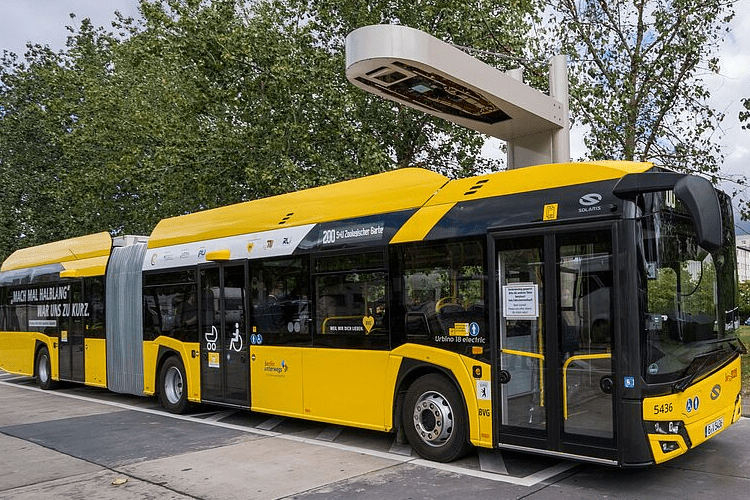Solaris hands over first of 50 electric buses in Berlin – including battery pass
The Berliner Verkehrsbetriebe (BVG) submitted the order for the 50 units at the end of 2023, and the first Urbino 18 electric was handed over precisely one year later. The model has a battery capacity of around 700 kWh and offers 41 seats. It is charged overnight at the depot or using a pantograph at the final stops. According to Solaris, the entire order should be completed in 2025.
As a unique feature, the Polish manufacturer states that the articulated electric bus now delivered has a battery passport, i.e. a digital document containing detailed information about the origin and composition of the battery. All 49 other buses for BVG will also have such a passport. It can be accessed by scanning the QR code on the batteries.
Solaris is early with this feature, as a functioning digital battery passport will not become mandatory in the EU until February 2027. The background to this is that the European Union adopted a new regulation on battery market regulation in August 2023. Key points of the document are a mandatory declaration and labelling – including with regard to battery components and the proportion of recycled material – as well as the aforementioned electronic battery passport and a QR code. To give member states and economic operators in the market sufficient time to prepare, the labelling requirements will apply from 2026 and the passport and QR code from 2027.
Solaris justifies the early adoption of this regulation with its leading role in Europe: “To date, Solaris has delivered over 5,000 zero-emission vehicles, with orders continuing to grow. As e-mobility expands, the number of batteries in use increases, making responsible management of this strategic zero-emission transport component essential.”





0 Comments